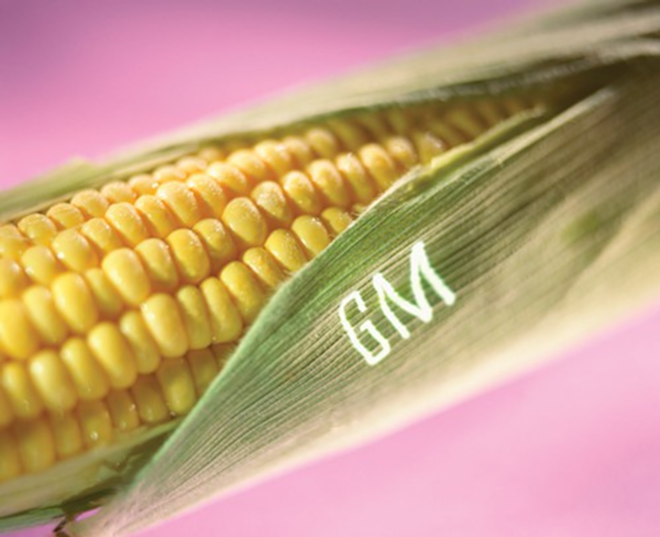

- Punch Stock
- The release of genetically modified organisms into the environment threatens genetic diversity, which is essential for global food security. And a lack of genetic diversity in agriculture, says Greenpeace, can already be linked to many of the major crop epidemics in human history.
E — The Environmental Magazine
Dear EarthTalk: What is “genetic pollution” as it pertains to the bioengineering of animals, fish and plants, and what happens if they cross breed with their wild cousins? — R. Ahearn, Rome, NY
Genetically modified organisms are those that have been altered by scientists to include genes from other organisms (known as transgenes) that may impart specific benefits. For instance, crop seeds that have added genes which resist the effects of herbicides can allow farmers to spray their fields liberally with herbicides to kill undesired weeds without the fear of killing their marketable crop along with them.
Genetic pollution is the release into the natural environment of these altered genes, creating the risk that they might breed with wild plants or animals and spread out uncontrollably. Reports author Jeremy Rifkin in his landmark 1998 book, The Biotech Century: “Some of those releases…could wreak havoc with the planet’s biosphere, spreading destabilizing and even deadly genetic pollution across the world.”
To follow through on the previous crop seed example: If herbicide-resistant, genetically engineered crops were to breed with their wild cousins, it could lead to the creation of super-weeds undeterred by control efforts. The weeds could, in turn, edge out native species and drive them to extinction, causing an overall loss of genetic diversity. According to Greenpeace, crop genetic diversity is “essential for global food security” and a lack of it can be linked to many of the major crop epidemics in human history, including the Southern corn leaf blight in the U.S. in 1970. They quote noted botanist Jack Harlan who said that genetic diversity is all that “stands between us and catastrophic starvation on a scale we can not imagine.”

